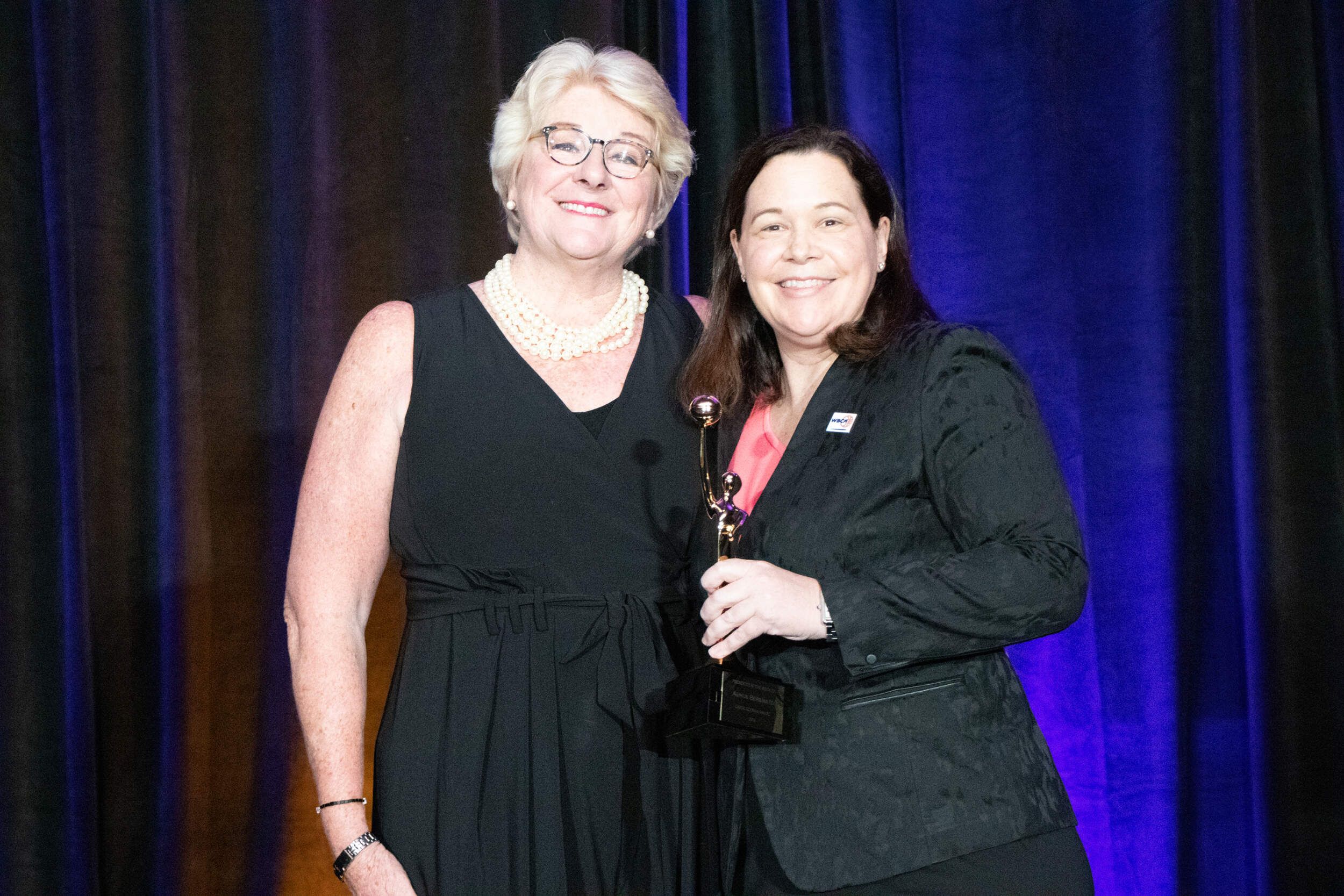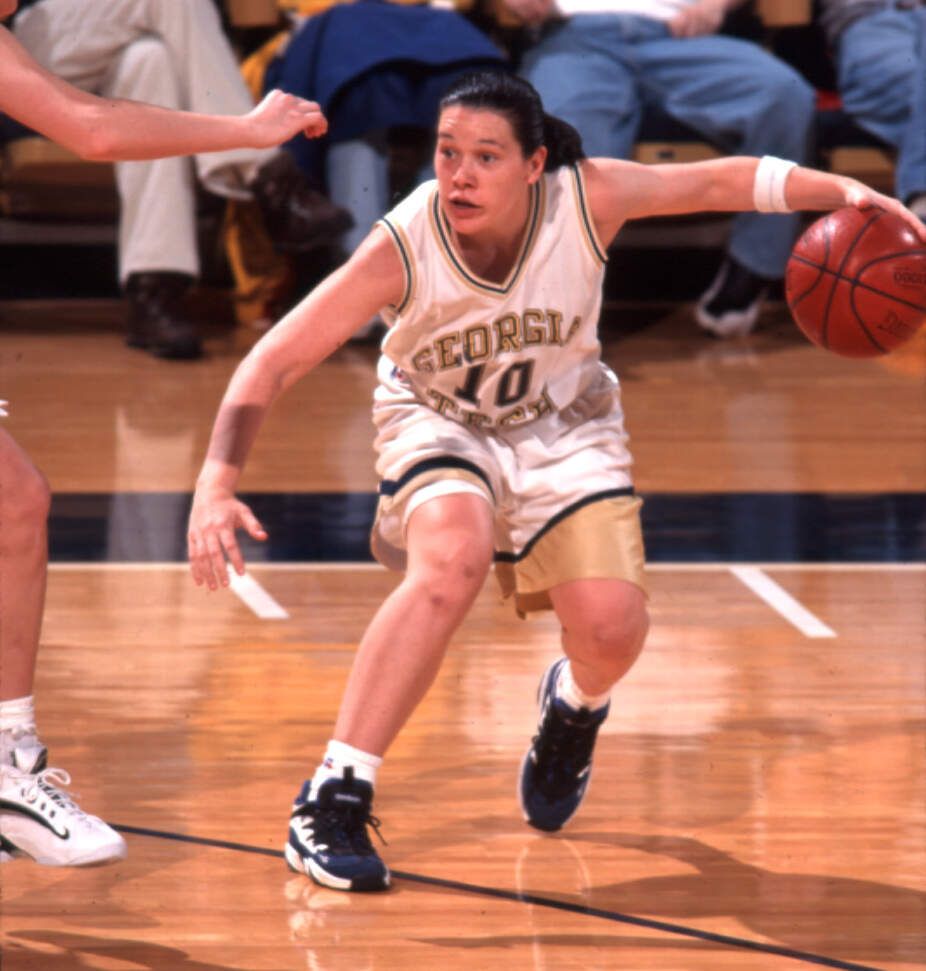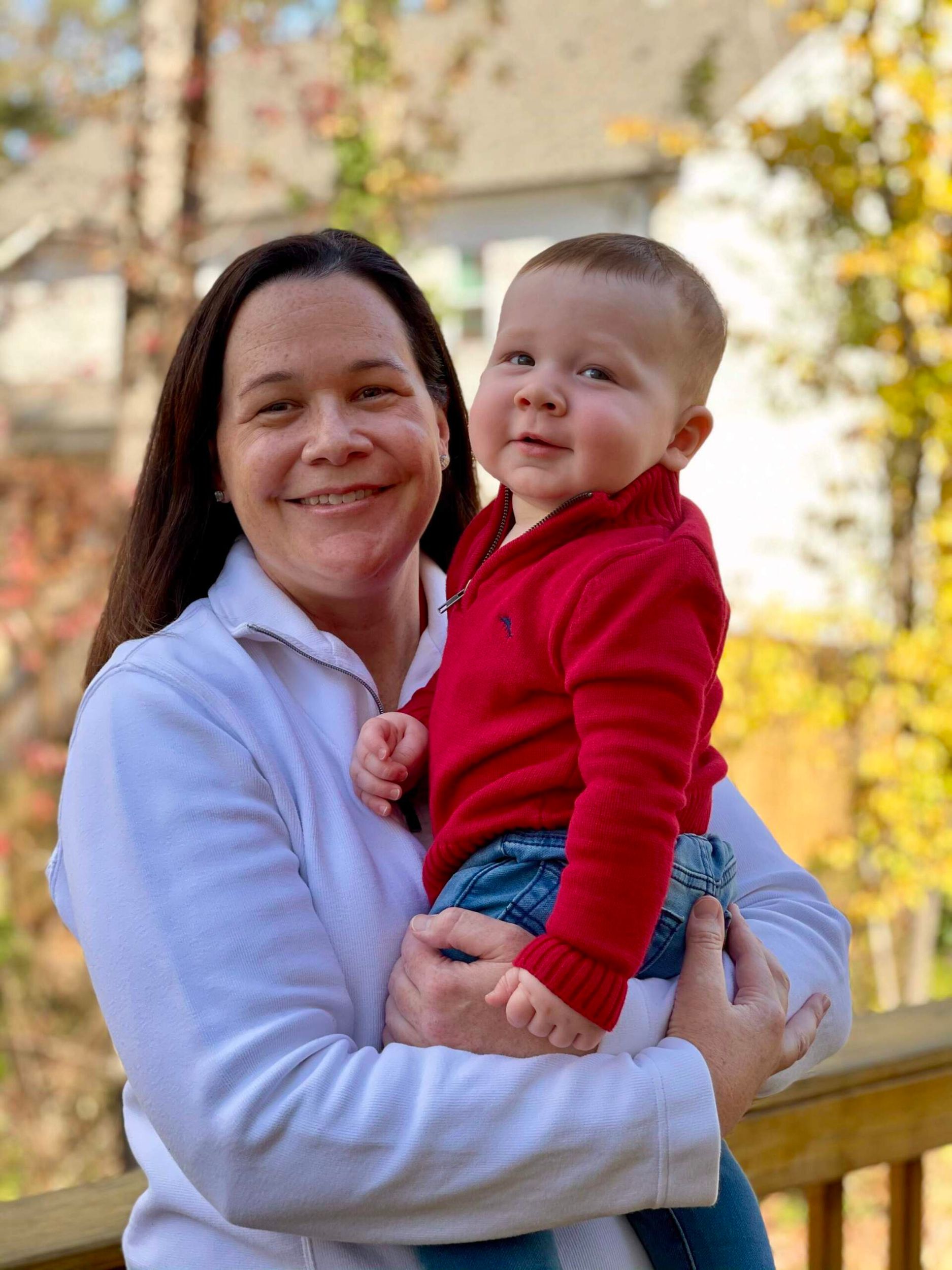This story originally appeared in the summer 2021 issue of Everyday Champions magazine. You can read the entire issue here.
By Adam Van Brimmer
Danielle Donehew is one of the Atlantic Coast Conference’s all-time sharpshooters in part because of her breakfast routine in high school.
Not Wheaties. Free throws.
Donehew honed her shooting touch by shooting 100 foul shots every morning before school. Once she arrived at Georgia Tech, assistant coach Debbie Richardson helped Donehew stretch her range.
Now 20 years removed from her playing career, she remains the Yellow Jackets’ record holder for 3-pointers made in a game and a season and is third on the school’s career list. Her touch earned her ACC Legend honors.
Donehew’s commitment to building her skills and her love for basketball has carried her to professional heights since hanging up her high-tops. She mentored under the legendary Pat Summitt, helped bring a WNBA franchise to Atlanta, led women’s basketball operations for a major college conference and now is the executive director of the Women’s Basketball Coaches Association.
Donehew recently shared insights on her time at Georgia Tech and how a lifetime of basketball experiences has shaped her with Everyday Champions.
Everyday Champions: Let’s start with that “legend”-worthy jump shot. Boys and girls today are shooting 3-pointers as soon as they’re strong enough to get the ball to the rim. How did you develop your shot?
Danielle Donehew: “My uncle, Marcus Mouchet, taught me at a young age to shoot a basketball and hit a golf ball. He spent so much time with me to help me learn fundamentals and proper techniques and made it fun. He taught me a love for the etiquette of each sport.
“Then, my high school coach, Scott Bursmith, challenged me to only shoot layups and free throws my freshman and sophomore years. As a point guard, I should get my teammates involved to score. I worked so hard for him to believe in me and one day when I was shooting at home it clicked.
“Once at Georgia Tech, coach Debbie Richardson spent so much time refining my shot during individual workouts. And coach Agnus Berenato would say, I had a green light to shoot any time I could. They instilled confidence in me.”
EC: You maximized your potential away from the court while at Georgia Tech as well, earning a degree in industrial and systems engineering. That program is considered one of the best in the world. Yet you have never worked in that field and have focused on basketball instead. Why did your professional aspirations change?
DD: “I chose industrial and systems engineering to be a leader in corporate America. Not long before graduation, I had a heart-to-heart with my mother. I told her I did not know if I wanted to work in corporate America. She encouraged me to follow my passion in sports and see if I could make sports my business. Also, she encouraged me to choose who I wanted to learn from. I chose Pat Summitt.”
EC: You enrolled at the University of Tennessee for graduate school and went to work for Coach Summitt. What did you take away from those seven years with the Lady Vols?
DD: “She was an amazing person and leader. She had a tireless work ethic and commitment to teach and develop her student-athletes. She was an educator in everything she did. She loved and pushed her student-athletes and everyone in her program to be their best. She was always painfully honest. She did not waste words or time. She invested it.
“One of the most amazing business skills I saw in her daily life was her way of making decisions. She wanted feedback. She wanted to learn about the matter at hand. And then when she made the decision, she pulled the trigger with strength and a sense of calm. And once she made a decision, you could count on it. She rarely ever changed her mind. Her word was her oath. Her decisions during games were fast, built on mountains of pre-game preparation. Her decisions surrounding the business of her program were still fast, but very well supported by relationships, conversations, homework and experience. She was not afraid to stand alone ever.”
EC: How did you end up on the basketball operations side?
DD: “One time when Pat and I were working out at a hotel workout room on a team travel trip, she asked me what I wanted to do. I proudly said I thought I wanted to be a coach. Without missing a beat, she said, ‘Danielle, I think you would be a terrible coach.’ I almost fell off the treadmill.
“She said, ‘I think your gifts are better suited for the business side of our sport. I think you can create an environment where coaches can be successful.’ What a tremendous mentor to evaluate my abilities and point me in the right direction for my life’s work. Pat was right and it’s amazing that that’s what I do every day. She said that to me when I was 22 years old.”
EC: All that basketball business experience put you in a position to play a role in bringing the WNBA and the Atlanta Dream to your hometown. How did you get involved with that effort?
DD: “A sorority sister, fellow student-athlete and good friend from my Georgia Tech days, Lara Hodgson, called and asked if I wanted to be part of a group of women leaders in Atlanta working to bring a WNBA team here. I asked Pat (Summitt) if it was OK, and she approved. So, for six months, I worked for the Tennessee Lady Vols during the day and on the Atlanta Dream project at night. It was a powerful group.”
EC: When did you go from part-time consultant to WNBA executive?
DD: “Once we delivered an owner and the league granted us a charter, I was offered an opportunity in the front office. It was 2008. I was part of Pat’s final national championship in Tampa, and four days later I was the executive vice president for the Atlanta Dream. It was fun to build a basketball business in my hometown, and we had a great front office team. One of my mentors was Marynell Meadors, our head coach and general manager. She had worked in the WNBA since the league was founded. Before that she was a longtime coach at Florida State. Another was Lisa Borders, who was president of the Atlanta City Council at the time and helped me understand the business community in Atlanta. We put so much time and effort into starting the Dream. I am proud the team continues to thrive today.”
EC: The Dream’s original majority owner, Ron Terwilliger, sold his stake in the team after two seasons, and the new ownership overhauled the front office. But when one door closed, another opened for you with the Big East Conference’s office. Looking back now, what do you remember most from that experience?
DD: “It was a difficult time and powerful lesson when our owner decided to sell the team after two seasons. The Big East recruited me to be the associate commissioner of women’s basketball. It is really profound to look back at my time at the Big East (which switched names to the American Athletic Conference), the relationships I gained, lessons I learned and the experience in serving a powerhouse of coaches and programs.
“I never expected that opportunity, but it was supposed to be my path, and I cherish the people and how it helped me grow.”
EC: All those experiences helped prepare you to lead an organization of your own. What do you enjoy most about being the executive director of the Women’s Basketball Coaches Association?
DD: “I believe in the role of the coach in the lives of their student-athletes and players. The coach is the most influential figure in a young person’s life outside their family. I have had the good fortune to have been surrounded by amazing coaches throughout my life. I am very proud of the role of the WBCA to serve the coaches in women’s and girls’ basketball throughout their coaching journey.”
EC: You’ve been at the WBCA for seven years now, so the culture is one you’ve built or at least refined. What is the primary goal going forward?
DD: “To position the WBCA and our coaches as a great asset within the (broader basketball) industry. It has been a real joy to be part of many major decisions within our sport. Our sport is in a place of strength and growing stronger.
“The current challenge is gender equity, specifically for the NCAA Division I women’s basketball tournament and within the NCAA business structure. The WBCA is standing strong in working within NCAA channels, communicating within the industry, and answering national media questions daily. It is time for women’s basketball to have the seat at the table it has earned.”
EC: You’ve talked about how your professional experiences, with Coach Summitt at Tennessee, with the WNBA’s Dream and with the Big East, built on each other and prepared you for the leadership role you are in now. Looking back to your Georgia Tech experience, what did you learn on The Flats that has most shaped your life since?
DD: “Tech was my springboard to my future. I was never the biggest, fastest, strongest or smartest. I learned to work smart, surround myself with people who were smarter than me, and ask for and offer help. Because of that I am able to live my passion by growing the business of basketball. I learned critical thinking, to be resourceful, determined and to take risks.”












